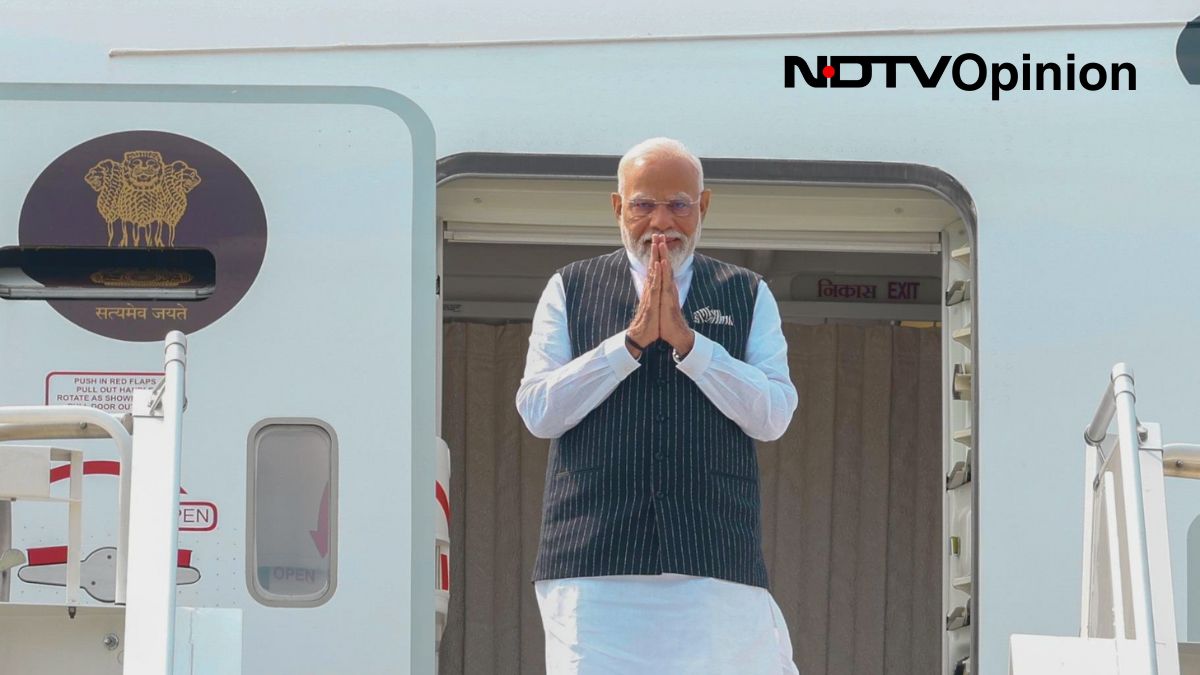President Droupadi Murmu visits the space exhibition with Union Minister of State for Science and Technology Jitendra Singh and ISRO Chairman S Somanath during the first National Space Day celebrations to commemorate the successful landing of the ‘Vikram’ Lander on the surface of the Moon, in New Delhi on August 23, 2024.
| Photo Credit: ANI
India’s space sector has directly contributed about $24 billion (₹20,000 crore) to India’s Gross Domestic Product over the last decade. It has directly supported 96,000 jobs in the public and private sector. For every dollar produced by the space sector, there was a multiplier effect of $2.54 to the Indian economy and India’s space force was 2.5 times “more productive” than the country’s broader industrial workforce.
These “preliminary findings” were part of a presentation by Steve Bochinger, Affiliate Executive Advisor, Novaspace, a European consultancy at the National Space Day celebrations in New Delhi on Friday (August 23, 2024).
The Space Day celebrations are to commemorate the first anniversary of the successful landing of the Chandrayaan-3 on August 23 last year.
The report was “initiated” by the Indian Space Research Organisation (ISRO), Mr. Bochinger said, to evaluate the socio-economic impact of the space sector from 2014-2023 and the study was conducted by Indian economics research firm econONE and Novaspace. The team interviewed representatives from 56 Indian organisations in public and private sectors.
“India’s space sector has benefitted from decades of consistent investment… with $13 billion invested in the last decade it is the 8th largest space economy (in terms of funding) in the world,” said Mr. Bochinger.
The Indian space sector was diversifying and now had 700 companies including 200 start-ups and had seen revenues grow to $6.3 billion in 2023, which was about 1.5% of the global space market.
Satellite communications contributed 54% to the space economy, followed by navigation (26%) and launches (11%). The main industries supported by the space sector were telecom (25%), information technology (10%) and administrative services (7%), the report highlighted. The complete report and the methodology used were not made public as of Friday evening.
Companies that the firm spoke to said that India’s progress in space had yet to significantly benefit their own profitability but change was in the air. “Stakeholders say that the space sector has largely contributed to the nation’s prestige, sovereignty and international leadership but lesser impact on say, competitiveness, access to new markets etc. (They say) that’s because in the last decade the space programme has been driven by political considerations but this is expected to change as commercial space is a becoming a key priority area,” said Mr. Bochinger, “Regulatory reforms that have been made are yet to realise their full effect. An under-developed venture capital ecosystem is hampering space technology start-ups from accessing capital.”










